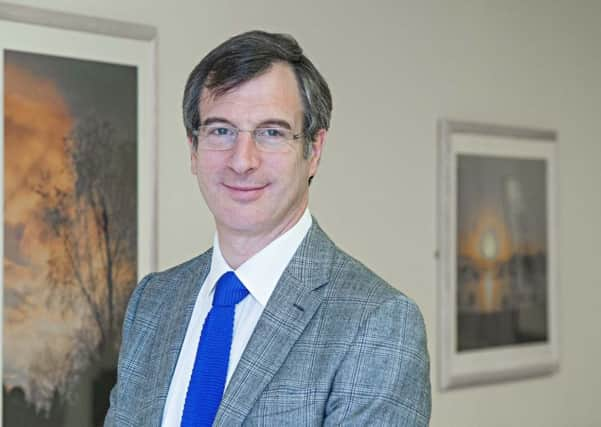Call for greater funding for IVF treatments


Yet it is a great irony, adds Professor Adam Balen, that it is now becoming inaccessible to all but an elite few in the very country that it was founded.
“Fertility treatment should be available to all who need it,” said Prof Balen, former chairman of the British Fertility Society and clinical director at Leeds IVF unit at Seacroft Hospital.
Advertisement
Hide AdAdvertisement
Hide Ad“The bonkers thing is that the investigations are available on the NHS - but not the treatment.
“We are celebrating 70 years of the NHS, and within this, IVF is on the list of our greatest achievements. What is ironic is that despite the conception of IVF in this country, it’s barely supported here. They don’t fund it properly.”
Prof Balen once worked in clinic with one of the pioneers of IVF technologies, physiologist Robert Edwards, a man he describes as “inspirational and humble”.
Dr Edwards had a vision, said Prof Balen, and persevered until that vision became a reality, changing the prospects for eight million families worldwide.
Advertisement
Hide AdAdvertisement
Hide AdThere have been huge advances in technology and science since those days he added, to the point where the debate worldwide is now about the prickly ethics of designer babies.
And in Leeds, IVF success rates are soaring because of advanced study, and the unit it leading the way internationally because of its research. Between 40 and 45 per cent of women, under the age of 37, he said, will now see success after a single round.
“We are proud of our unit, we have extremely high success rates,” he said. “We started slow, and built our way up. We have had nearly 15,000 babies since we started, as a result of IVF. That’s the equivalent of populating a town like Skipton.
“Infertility is a major problem for many people - about 15 per cent of people experience fertility problems, it is really quite prevalent,” he said. “Everybody should have the right to try for a family, and IVF has revolutionised the ability to help.”
Advertisement
Hide AdAdvertisement
Hide AdProf Balen, who is on a World Health Organisation working group expanding the reach of affordable treatments worldwide, says IVF is underfunded.
“I do appreciate the need for rationing, and I do appreciate we have got a limited pot, and the NHS is under pressure,” he said.
“But there’s a lot of wastage. This is a cost effective treatment that provides benefits, not only to individuals and to families but to society, to community.
“The benefits that society gets from the birth of an IVF baby, the benefits from that child’s life, will be delivered back into the economy far more than what the treatment cost to the NHS.
Advertisement
Hide AdAdvertisement
Hide Ad“In total, around £74m is needed. That sort of money is spent annually on things like support stockings.
“As a percentage of the NHS budget, whilst £74m may seem a lot, it’s a tiny amount. The success rates that we have these days give people a really good chance.”
Prof Balen was this week joined by a work-experience student, Lucy, who wants to be a doctor. An IVF baby born in the hospital nearly two decades ago, the last time he saw her was when she was a tiny two-cell embryo.
“It’s a great privilege to work in the field of IVF,” he said. “It’s an amazing experience, to see the families, to see their children grow.
Advertisement
Hide AdAdvertisement
Hide Ad“It’s a privilege to be a part of so many people’s lives, and to make a difference.
“It’s an amazing field - we would encourage the NHS to ensure that it’s properly funded.”
A Department of Health and Social Care spokesperson said NHS funding is rising at a rate of 3.4 per cent a year, meaning it will receive an additional £20.5bn a year more by 2023/24.
“The Government has been clear that IVF services should be accessible to patients that meet the criteria set out in NICE guidance,” the spokesman added.
Advertisement
Hide AdAdvertisement
Hide AdAnd a spokesman for NHS England, stressing that expanding treatment options mean more people than ever are successfully starting a family, said: “In reality the NHS has never been able to offer all of the IVF that people might want. Nonetheless, there were over 20,000 babies born using IVF in the UK in 2016 with the number of cycles funded by the NHS remaining consistent.”